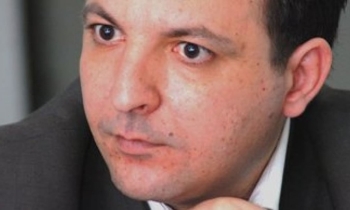NEW YORK — Major newspapers came under fire from top Bush administration officials Friday for publishing accounts, despite objections from the White House, of an extensive program to collect data on international financial transfers by suspected terrorists.
Treasury Secretary John Snow said the disclosures, which appeared in The New York Times, Los Angeles Times and The Wall Street Journal, were "regrettable" and "can only help the terrorists" by revealing sources and methods used by investigators. "This is a great disappointment to me."
Treasury officials obtained access to an extensive international financial data base _ the Society for Worldwide Interbank Financial Telecommunication, or Swift, in the weeks following the Sept. 11 attacks. The cooperative, based in Belgium, handles financial message traffic from thousands of financial institutions in more than 200 countries.
Vice President Dick Cheney, speaking at a political lunch meeting in Chicago, also denounced the disclosures, saying they make it "more difficult for us to prevent future attacks against the American people," Cheney said. "That offends me."
The top editors of The New York Times and the Los Angeles Times said they proceeded with the stories _ based on anonymous sources _ only after carefully considering White House concerns and determining that running the stories was in the public interest.
The New York Times noted in its story that Stuart Levey, a senior official in the Treasury Dept., agreed to discuss the classified program after the papers' editors told him that the Times had declined the administration's request to hold the story.
Bill Keller, the Times' executive editor, said in an interview with the Associated Press that he and other top editors held "very extensive" conversations with Bush administration officials at the Cabinet level over the past few weeks. He characterized the meetings as "cordial and extremely respectful."
The Times and the White House have clashed before on stories over national security. In December, the paper published a separate story, despite objections from the administration, on efforts by the National Security Agency to monitor Americans' telephone calls and e-mails.
Keller said he has not heard any negative reactions from the administration over the paper's decision to go ahead with the story on financial transfers, but he said: "Obviously it's a question on our minds, given the way they reacted to our NSA eavesdropping story last year," when the government launched an investigation into the leak.
But Keller said he doesn't actually expect repercussions from the paper's decision to decline the administration's request to hold the story. "They know that browbeating editors is not that effective, so there wasn't any browbeating," he said.
The White House indicated it would not take any measures against the newspapers that published the story. "Absolutely not," deputy press secretary Dana Perino said. "In fact, the Treasury Department worked extensively with The New York Times while it worked on today's story. We will continue to work with all members of the press."
Doyle McManus, the Washington bureau chief for the Los Angeles Times, said his paper had a story ready to go several days ago and was still having internal discussions over whether to publish it when The New York Times posted its own story on the Web Thursday evening.
At that point, he said, "the issue of withholding our story was largely moot."
Robert Christie, a spokesman for Dow Jones & Co., publisher of The Wall Street Journal, said that the newspaper wasn't asked to hold its article, but he declined to elaborate on the editing or reporting process behind the story.
The Times came in for criticism from conservative commentators Friday, including Stephen Spruiell, who wrote on the National Review's Web site that he thought the Times' editors "really do believe they are above the law."
But other commentators praised the newspapers. Alex S. Jones, co-author of a book on The New York Times, said the financial monitoring program "represents a huge amount of power to probe the finances of Americans without any warrants or judicial review."
"These extraordinary powers need to be watched very carefully," said Jones, who is also the director of the Shorenstein Center on the Press, Politics and Public Policy at the Kennedy School of Government at Harvard University.
Aly Colon, who teaches ethics at the Poynter Institute, a school for journalists in St. Petersburg, Fla., said the conflict over the financial monitoring program would be unlikely to make the tensions between the White House and news outlets any worse.
And, "if anything, the press has been, in the view of some, not as active in publishing as much material as some might like to have," said Colon.
AP reporters Martin Crutsinger and Deb Riechmann contributed to this story from Washington.









